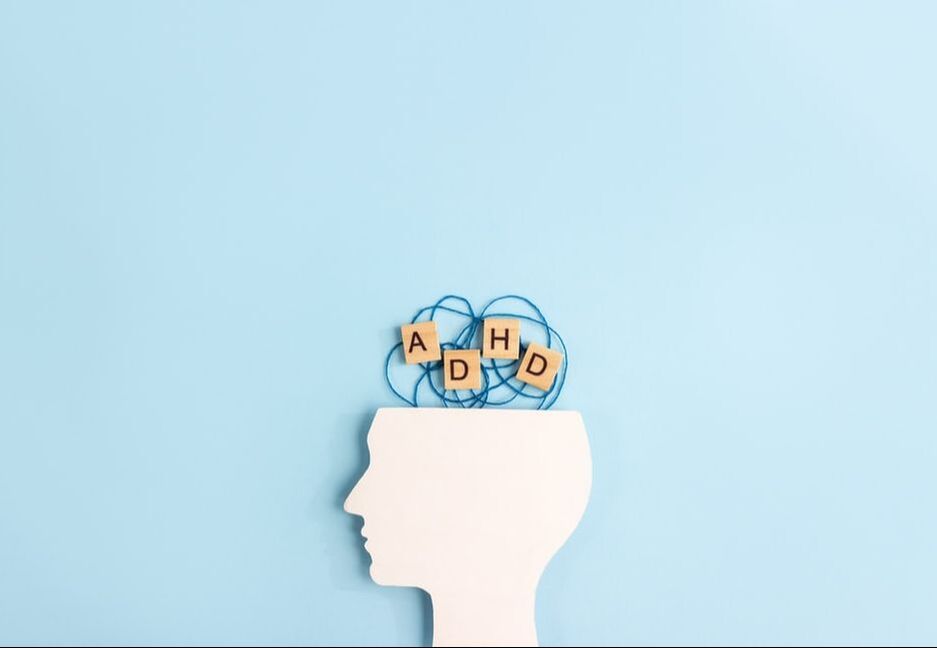Organization Strategies for Adult ADHDWritten by Hillary Gorin, PhD, LCP(from Mastering Your Adult ADHD: Cognitive-Behavioral Treatment Program by Steven Safren, Susan Sprich, Carol Perlman, and Michael Otto, 2017)
Individuals with attention deficit/ hyperactivity disorder (ADHD) struggle with focus, attention, and/ or hyperactivity and impulsivity (American Psychiatric Association, 2013). ADHD can therefore often lead to difficulties organizing tasks, focusing on tasks, and completing tasks (American Psychiatric Association, 2013). Because of these difficulties, someone with ADHD may be more prone to procrastinate and wait until the very last minute due to feeling overwhelmed and unable to complete a task (Safren et al., 2017). They also may generally struggle with keeping life organized and taking care of responsibilities. In part, this is due to the prefrontal cortex abnormalities associated with ADHD, or abnormalities in the part of the brain involved in rational thinking, planning, organizing, and impulse control (Vaidya, 2012). Safren and colleagues (2017) have created a Cognitive-Behavioral Treatment Program for Adults with ADHD. In this program, they suggest some strategies for overcoming difficulties with organization. They first provide suggestions for prioritizing tasks by creating daily task lists: What is it you are hoping to accomplish today? Individuals with ADHD may be prone to complete the easy and less important tasks first. However, this may then halt progress towards important, more challenging goals. Therefore, Safren and colleagues (2017) suggest that, after a daily task list is created, the level of importance of tasks on the list should be considered. Specifically, they suggest labeling tasks as A, B, or C tasks. The A tasks should be the most important tasks that must be completed today or tomorrow. The B tasks are less important and the C tasks are of lowest importance (Safren et al., 2017). After the most important A tasks have been determined, they recommend mapping out when you will have time to complete the A tasks and adding A tasks into a daily schedule/ planner. They further emphasize that it is important to create daily goals that are realistic (Safen et al., 2017). If the plan for the day or completion of a task feels too overwhelming, the plan or task may need to be reconsidered. They suggest breaking overwhelming tasks into more manageable steps if a task feels too large. In other words, write out steps of a complex task/ break the complex task into smaller steps. These smaller steps can then be placed into the schedule/ plan for the day. Although these strategies may seem simple, they can be critical for organizing and prioritizing task completion which in turn can improve productivity, reduce frustration, and reduce self criticism for “not accomplishing enough today.” Many other strategies can be helpful in cognitive behavioral therapy for ADHD for organizing tasks, reducing procrastination, improving focus, etc.. Reach out today to work with a trained mental health professional for additional support in applying these and additional strategies! References American Psychiatric Association. (2013). Diagnostic and statistical manual of mental disorders (5th ed.). https://doi.org/10.1176/appi.books.9780890425596 Safren, S. A., Sprich, S. E., Perlman, C. A., & Otto, M. W. (2019). Mastering your adult ADHD: A cognitive-behavioral treatment program: Therapist Guide (2nd ed.). Oxford University Press. Vaidya, C. J. (2012). Neurodevelopmental abnormalities in ADHD. Current Topics in Behavioral Neuroscience, 9(1), 49-66. https://doi:10.1007/7854_2011_138 Comments are closed.
|
OakHeart
|
- Home
- Counseling
-
Specialties
- Depression
- Bipolar Disorder
- Anxiety Disorders >
- Obsessive-Compulsive Disorder (OCD)
- Eating Disorders
- Grief and Bereavement
- ADHD
- Maternal Mental Health
- Infertility, Miscarriage, and Neonatal Loss
- Domestic Violence and Sexual Assault
- Posttraumatic Stress Disorder (PTSD) >
- Trauma
- Non-Suicidal Self-Injury (NSSI)
- Substance Use Disorders (SUD)
- Anger Management
- Insomnia
- Divorce Recovery
- Relationship Concerns and Couples Counseling
- Self-Esteem
- Therapy for Therapists
- LGBTQA+ Support
- Faith-Based Counseling
-
Providers
- Erin Mitchell
- Pamela Heilman
- Katie Sheehan
- Hillary Gorin
- Lee Ann Heathcoat
- Adam Ginsburg
- Megan Noren
- Sarah Williams
- Christina Bieche
- Bridgette Koukos
- Laura Lahay
- Kate Nash
- Anna Perkowski
- Alma Lazaro
- Leah Arthur
- Marissa Vogrin
- Erin Blair
- Amy Jakobsen
- Lizzy Lowe
- Tony Fasano
- Gerry Lawm
- Vanessa Osmer
- Kat Harris
- Locations
- Contact
- Treatments
- Employment
- FAQ and Notices
- OakHeart Blog
- Administrative and Leadership Team
- Mental Health Resources
- Divorce Mediation
- Professional Consultation
|
|




